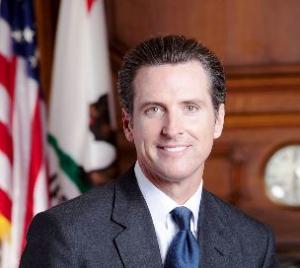But there's this thing called the First Amendment...
The fight to defund federal law enforcement in medical marijuana states continues, the NFL is ready to work with players on medical marijuana for pain management, Puerto Rico is banking on medical marijuana to boost its economy, and more.
A crooked police scandal is brewing in Baltimore, a crooked Chicago-area cop heads for federal prison, so does an Alabama prison guard, and more.
An anticipated Justice Department decision on what to do about legal marijuana hasn't happened yet, Massachusetts' governor signs the legal marijuana implementation bill, the GAO reports on federal drug policy, and more.
New federal bills aim to remove state-legal marijuana and industrial hemp from the purview of the Controlled Substances Act, Jeff Sessions' drug war is slow getting off the ground, an Indian minister comes out for medical marijuana, and more.
Federal bills to legalize pot and to allow drug testing of people seeking unemployment benefits get filed, the presidential commission on opioids issues a preliminary reports, the NFL offers to work with the players' union on medical marijuana, and more.
Oregon Senator Ron Wyden has asked Attorney General Sessions to release recommendations on possible changes in federal marijuana enforcement, congressmembers want changes at Customs and Border Protection after video of a Mexican teen's death after drinking meth in front of Customs agents went public, and more.
A municipal court judge in Louisiana with an apparently limited understanding of the US Constitution is forcing first-time drug offenders seeking probation to attend a Christian program called "Life Choices" offered by a local church.
The First Amendment's Establishment clause mandates that the government cannot in any way promote, advance, or otherwise endorse any religion, a principle well-established in federal jurisprudence. That bright dividing line between church and state also applies to court orders and terms of probation that require participation in religious programs, as can be seen in
a line of cases decided in federal appeals courts over the past 20 years.
The fundamental principle behind Establishment cause jurisprudence is, as noted in Lee v. Weisman (1992), that government must remain neutral toward religion because "the preservation and transmission of religious beliefs and worship is a responsibility and a choice committed to the private sphere."
Not in the court of Sulphur City Court Judge Charles Schrumpf, though. As the Freedom From Religion Foundation noted in a July 20 complaint letter to Schrump and probation officer Barbarba Adam, Schrump's way of handling those cases is completely unconstitutional. Probationers in the program receive a Bible and have to complete homework that involves reading passages from scripture, as well as from the evangelical text "Made to Crave."
According to the letter, probationers who objected to participating in the Life Choices program because of its religious content have been told by Probation Officer Adam to "take it up with the judge" in a threatening tone and warned that failure to complete the program would result in the revocation of their probation.
According to the blog Friendly Atheist, which spoke with a person ordered to take the course, the course teacher said that while attendees weren't required to be Christian, that was the ultimate goal, and Probation Officer Adams responded to an attendee who said he was an atheist by saying, "We'll see how you feel after eight weeks [of class]."
The foundation is demanding that the practice be ended and that if the court is going to impose drug treatment or counseling as a condition of probation, it does so through programs that are "medical and secular, not religious in nature." At this point, the foundation is not threatening a lawsuit; only seeking notification "of the appropriate actions taken by the Court and the Probation Office to protect the right of conscience of probationers in their care."
There is no word yet on whether Judge Schrumpf will heed the foundation's complaint and restore the Constitution in his court or whether he will double down in defiance. In the meantime, if you get caught with drugs in Sulphur Springs, may God help you.
back to top
The fight to defund federal law enforcement in medical marijuana states continues, the NFL is ready to work with players on medical marijuana for pain management, Puerto Rico is banking on medical marijuana to boost its economy, and more.
National
Last Thursday, a Senate panel approved an amendment defunding DOJ medical marijuana enforcement. The Senate Appropriations Committee voted to approve an amendment that would block the Justice Department from spending any funds to go after medical marijuana in states where it is legal. The amendment, which passed with strong Republican support, is a striking rebuke to Attorney General Jeff Sessions, who had personally requested that Congress kill the amendment. A House committee last Wednesday killed a similar amendment, but if the Senate amendment stays in the appropriations bill, it could be the basis for conference committee negotiations later.
On Monday, the NFL offered to work with the players' union on pot for pain management. The NFL has sent a letter to the NFL Players Association offering to work together with the union to study the possibility of marijuana as a pain management tool for players. The NFLPA is already conducting its own study and has yet to respond to the league's offer.
Nevada
Last Tuesday, the state Supreme Court upheld the medical marijuana registry. In its decision, the state Supreme Court unanimously upheld the constitutionality of the state's medical marijuana registry. The program had been challenged by a John Doe lawsuit, which complained that the registry and associated fees violated his due process rights. The lawsuit was rejected by lower state courts, and now the state's highest court has agreed.
Ohio
Last Friday, the state's medical marijuana rules got settled. A bipartisan legislative panel has decided not to modify more than a hundred separate rules proposed by the state Pharmacy Board and Department of Commerce to govern the state's nascent medical marijuana industry. That means medical marijuana growers, processers, sellers, testers, and users can now begin to get down to business. Growing operations are expected to start being licensed next month, and the whole system is supposed to be up and running by September 1, 2018.
Pennsylvania
Last Thursday, a medical marijuana job fair drug hundreds. Hundreds of people showed up for a chance to get a job at PurePenn's future production facility in McKeesport. The company will be growing pot plants and producing capsules, ointments, and oils. It is expected to be fully operational by January. Employees will be paid twice the minimum wage.
Puerto Rico
On Tuesday, the island was looking to medical marijuana as an economic boost. Economically ravaged Puerto Rico is counting on medical marijuana to boost its economy. The island's treasury secretary estimates the industry could generate up to $100 million a year and help reduce an unemployment rate currently around 12%. The US territory is in a fiscal crisis, facing billions in budgets cuts and a public debt load of $70 billion. David Quinones, operations director of the island's largest medical marijuana producer, Natural Ventures, told the Washington Post, "Name one new industry in Puerto Rico capable of generating millions and billions in capital and improving an economy in a mega-crisis. There is none."
Utah
On Sunday, a new poll found a "supermajority" in favor of medical marijuana. Nearly four out of five (78%) Utahns favor a medical marijuana initiative now in the signature gathering phase of its campaign, according to a Dan Jones & Associates poll commissioned by the Salt Lake Tribune. The campaign is headed by the Utah Patients Coalition, which is acting after the state legislature baling at approving medical marijuana.
[For extensive information about the medical marijuana debate, presented in a neutral format, visit MedicalMarijuana.ProCon.org.]
back to top
A crooked police scandal is brewing in Baltimore, a crooked Chicago-area cop heads for federal prison, so does an Alabama prison guard, and more. Let's get to it:
In Baltimore,
prosecutors threw out 34 drug cases last Friday as they investigate three officers accused of planting evidence at crime scenes. Body camera footage recently released appeared to show an officer planting drugs at a crime scene in January, and that has prompted the dismissals. Another 123 cases are under review.
In Putnamville, Indiana, a state prison guard was arrested last Thursday after being caught smuggling drugs into the Putnamville Prison. Guard Stephany Dawson went down after officers searched her car as she arrived at work and found meth, marijuana, and tobacco. She admitted bringing a large amount of drugs into the prison. It's unclear precisely what charges she faces.
In Louisville, a state prison guard was arrested last Friday after he was caught bringing drugs into the prison. Guard Danny Ford, 49, was arrested at the West Kentucky Correctional Complex after officers found him with a large quantity of suboxone. He is charged with possession of a controlled substance and promoting contraband.
In Chicago, a former Melrose Park police detective was sentenced last Wednesday to 11 years in federal prison for a career of corruption. Gregory Salvi had pleaded earlier this year to moonlighting as a drug dealer, including selling drugs he stole from the evidence room. Salvi was looking at a 10-year mandatory minimum on one count each of possession of drugs with intent to deliver and using a gun in a drug trafficking crime.
In Birmingham, Alabama, a former state prison guard was sentenced last Thursday to 54 months in federal prison for smuggling drugs into the prison. Johntarance Henriquis McCray, 23, went down after authorities were alerted he was trafficking into the prison and searched him. They found two bundles in his underwear containing crack cocaine, powder cocaine, methamphetamine, marijuana, Xanax, and Suboxone. Officers found a duffle bag containing additional drugs, a loaded 9-milimeter handgun and more than $400 in McCray's vehicle.
back to top
An anticipated Justice Department decision on what to do about legal marijuana hasn't happened yet, Massachusetts' governor signs the legal pot implementation bill, the GAO reports on federal drug policy, and more.

California Lt. Gov. Gavin Newsom is picking up big bucks from the cannabis industry as he campaigns for governor. (ca.gov)
Justice Department Has No Plan on Marijuana Yet. The department's Task Force on Crime Reduction and Public Safety was supposed to turn over recommendations on a number of criminal justice issues, including how to deal with states that legalized for medical or recreational use, by Thursday. Thursday has come and gone, but there is nothing about marijuana yet. Attorney General Sessions provided an update Wednesday on the task force's work, but again nothing about marijuana policy.
Massachusetts Governor Signs Legal Pot Regulation Bill. Gov. Charlie Baker (R) on Friday signed into law House Bill 3818, which implements -- with some changes -- the marijuana legalization initiative approved by voters last November. Among the changes: Legal marijuana sales are delayed from January 1 to July 1, 2018, the three-member Cannabis Control Commission has been expanded to five members, localities that voted against legalizing marijuana will be able to ban pot businesses without a popular vote, and the tax rate has been increased from 12% to 17%, with localities able to tack on another 3%. Under the new law, Bay State adults can possess up to an ounce in public and 10 ounces at home and can grow up to six plants.
California Lt. Gov. Newsom Picking Up Big Bucks from Pot Industry. Lt. Gov. Gavin Newsom, a leading supporter of marijuana legalization, is a leading contender for the Democratic gubernatorial nomination, and the state's marijuana industry is throwing money at him. Cultivators, retailers, and others in the industry have so far donated $300,000 to his campaign, dwarfing pot industry contributions to his challengers, former Los Angeles Mayor Antonio Villaraigosa ($5,000) and current state Treasurer John Chiang ($100). The pot industry's contributions to Newsom are only a fraction of the $14 million he's raised so far, but shows the sector's emergence as a political player in the state.
Medical Marijuana
Pennsylvania Medical Marijuana Job Fair Draws Hundreds. Hundreds of people showed up Thursday for a chance to get a job at PurePenn's future production facility in McKeesport. The company will be growing pot plants and producing capsules, ointments, and oils. It is expected to be fully operational by January. Employees will be paid twice the minimum wage.
Drug Policy
GAO Report Finds Federal Drug Policy Mostly Fails at Achieving Stated Goals. In a report released this week, the Government Accountability Office (GAO) diplomatically said that the federal government "has made mixed progress" toward meeting goals articulated in the 2010 National Drug Control Strategy. "The federal government made moderate progress toward achieving two goals, limited progress on two goals, and no progress on the other three goals. However, none of the overall goals in the Strategy were fully achieved," the watchdog reported. Among those goals was reducing drug overdose deaths by 15%, but they instead increased by 41.5%.
(This article was prepared by StoptheDrugWar.org"s lobbying arm, the Drug Reform Coordination Network, which also pays the cost of maintaining this web site. DRCNet Foundation takes no positions on candidates for public office, in compliance with section 501(c)(3) of the Internal Revenue Code, and does not pay for reporting that could be interpreted or misinterpreted as doing so.)
back to top
New federal bills aim to remove state-legal marijuana and industrial hemp from the purview of the Controlled Substances Act, Jeff Sessions' drug war is slow getting off the ground, an Indian minister comes out for medical marijuana, and more.

What's in your Ecstasy? British festivalgoers could find out. (erowid.org)
Federal Bill to Make CSA Inapplicable to Marijuana in Legal Marijuana States Filed. US Rep. Suzan DelBene (D-WA) filed House Resolution 3534 on Friday. The bill would "make the Controlled Substances Act inapplicable with respect to marijuana in states that have legalized marijuana and have in effect a statewide regulatory regime to protect certain Federal interests."
Industrial Hemp
Federal Bill to Exempt Hemp from CSA Filed. Rep. James Comer (R-KY) filed House Resolution 3530 on Friday. The bill would "amend the Controlled Substances Act to exclude industrial hemp from the definition of marihuana."
Drug Policy
Attorney General Sessions' Drug War Hasn't Taken Hold -- Yet. The attorney general has vowed to crack down on drugs, but data released last week show it isn't happening yet. Federal drug prosecutions are at historic lows, with experts pointing to a federal hiring freeze instituted by the Trump administration and the Senate's slow pace on appointing new US attorneys as potential causes. Without having key people in key positions, the Sessions Justice Department must rely on local investigators and prosecutors who may still be operating under Obama-era reforms.
International
Indian Minister Calls for Medical Marijuana Legalization. Indian Minister for Women and Child Development Maneka Gandhi has come out in favor of legalizing medical marijuana. "Marijuana should be legalized for medical purposes, especially as it serves a purpose in [treating] cancer," she said during a ministerial discussion on India's National Drug Demand Reduction. Although cannabis has been part of Indian culture for more than 3,000 years, the country banned it in 1985 under US pressure.
British Festival Allowed Pill Testing. Attendees at the Kendal Calling music festival in Cumbria this past weekend were able to get their pills and powders tested for potency and adulteration without fear of arrest thanks to an on-site lab operated by an NGO. Testers reported finding malaria medication, insecticide and concrete in some of the substances tested. "We accept that some people will get drugs on site and some people will be planning to take them so what we're doing is trying to address any potential health problems," said Professor Fiona Measham, director of the NGO The Loop. "This is a focus on public health rather than on criminal justice."
back to top
Federal bills to legalize marijuana and allow drug testing of people seeking unemployment benefits get filed, the presidential commission on opioids issues a preliminary reports, the NFL offers to work with the players' union on medical marijuana, and more.
Marijuana Policy

With overdoses at record levels, Trump's presidential commission takes a largely public health approach to the crisis.
. Sen. Cory Booker (D-NJ) filed the Marijuana Justice Act on Tuesday. The bill would remove marijuana from the Controlled Substances Act, punish states for disproportionately arresting or imprisoning poor people or minorities for marijuana offenses, prevent deportation for marijuana offenses, provide for resentencing of federal marijuana prisoners, and create a $500 million "Community Reinvestment Fund" for communities most negatively impacted by the war on drugs.
South Dakota Legalization Initiative Imperiled by Wording Error. A legalization initiative sponsored by New Approach South Dakota could be in trouble over a wording error. The way the measure is worded, it would, according to Legislative Council analysts, only legalize pot paraphernalia, not marijuana itself. The campaign said the problem is only a "typo" and can be fixed. Friendly legislators have offered to author a legislative fix if the initiative passes. Because of state initiative deadlines, it is too late for petitioners to start over in time to get on the November 2018 ballot.
Medical Marijuana
NFL Offers to Work With Players Union on Marijuana for Pain Management. The NFL has sent a letter to the NFL Players Association offering to work together with the union to study the possibility of marijuana as a pain management tool for players. The NFLPA is already conducting its own study and has yet to respond to the league's offer.
Ohio Medical Marijuana Rules Get Settled. A bipartisan legislative panel has decided not to modify more than a hundred separate rules proposed by the state Pharmacy Board and Department of Commerce to govern the state's nascent medical marijuana industry. That means medical marijuana growers, processers, sellers, testers, and users can now begin to get down to business. Growing operations are expected to start being licensed next month, and the whole system is supposed to be up and running by September 1, 2018.
Utah Poll Finds "Supermajority" Support for Medical Marijuana. Nearly four out of five (78%) Utahns favor a medical marijuana initiative now in the signature gathering phase of its campaign, according to a Dan Jones & Associates poll commissioned by the Salt Lake Tribune. The campaign is headed by the Utah Patients Coalition, which is acting after the state legislature baling at approving medical marijuana.
Drug Testing
Federal Unemployment Drug Testing Bill Filed. Rep. Buddy Carter (R-SC) has filed the Ensuring Quality in the Unemployment Insurance Program (EQUIP) Act, which would require people applying for unemployment assistance to undergo substance abuse screening and possible drug testing to receive benefits. "Unemployment is not for people who are abusing drugs and using that money to buy drugs but instead to help them get back on their feet," said Rep. Carter. "And we want to make sure that is what they are doing with it." People applying for those benefits have been laid-off from jobs for lack of work, not let go for drug abuse.
Heroin and Prescription Opioids
Presidential Commission Issues Belated Preliminary Report, Calls for Declaration of National Emergency. The presidential Commission on Combating Drug Addiction and the Opioid Crisis led by Gov. Chris Christie (R-NJ) issued a preliminary report on Monday whose lead recommendation is for the president "to declare a national emergency under either the Public Service Act or the Stafford Act." The report largely takes a public health approach to the issue, calling as well for expanding drug treatment capacity under Medicaid, increasing the use of medication-assisted treatment for opioid disorders, mandating that all police officers carry the opioid overdose reversal drug naloxone, broadening Good Samaritan laws, and encouraging the development of non-opioid pain relievers.
back to top
Oregon Senator Ron Wyden has asked Attorney General Sessions to release recommendations on possible changes in federal marijuana enforcement, congressmembers want changes at Customs and Border Protection after video of a Mexican teen's death after drinking meth in front of Customs agents went public, and more.

Puerto Rico is hoping medical marijuana will deliver an economic miracle. (Creative Commons)
Ron Wyden Asks Sessions to Release Crime Task Force Marijuana Recommendations. Oregon Democratic Sen. Ron Wyden sent a letter to Attorney General Sessions Tuesday pressing him to reveal any possible changes to federal marijuana enforcement policies contained in recommendations presented to him last week by the Justice Department's Task Force on Crime Reduction and Public Safety. "It is concerning to see this administration failing, once again, to be transparent and straightforward with the American people about the motivations behind its policy shifts," Wyden wrote. "I write to you today to ask that the recommendations of the Task Force on Crime Reduction and Public Safety immediately be made public."
Medical Marijuana
Puerto Rico Looks to Medical Marijuana as Economic Medicine. Economically ravaged Puerto Rico is counting on medical marijuana to boost its economy. The island's treasury secretary estimates the industry could generate up to $100 million a year and help reduce an unemployment rate currently around 12%. The US territory is in a fiscal crisis, facing billions in budgets cuts and a public debt load of $70 billion. David Quinones, operations director of Puerto Rico's largest medical marijuana producer, Natural Ventures, told the Washington Post: "Name one new industry in Puerto Rico capable of generating millions and billions in capital and improving an economy in a mega-crisis. There is none."
Law Enforcement
Oregon Drug Task Force Disbanding. The Lane County Interagency Narcotics Enforcement Team is disbanding effective immediately, with Board Chairman Rick Lewis, the police chief in Springfield, citing budget and staffing issues. The task force, which was founded in 1987 to deal primarily with meth labs, has disbanded once before. In 2005, it was shut down for three years after budgeting shortfalls. Last year, the task force made 110 arrests and seized nearly 15 pounds of meth and $133,000 in cash.
After Death Of Teen Who Drank Liquid Meth At Checkpoint, Lawmakers Call For Action. Members of Congress are calling on the Department of Homeland Security to take steps to improve training after video of a Mexican teen drinking liquid methamphetamine in front of Customs agents and then dying became public last week. The boy, Cruz Velazquez Acevedo, died in 2013. "What happened to Cruz Velazquez was absolutely horrible, and we must guarantee that something like this never happens again," Rep. Juan Vargas, D-Calif., said in an email Monday to KPBS. "I am requesting an immediate response from the Department of Homeland Security to ensure that proper training is put in place for Customs and Border Protection agents." The Department of Homeland Security has already paid a $1 million settlement with the teen's family.
back to top






